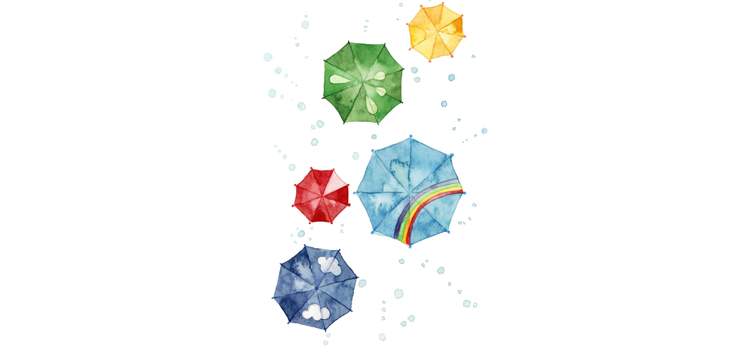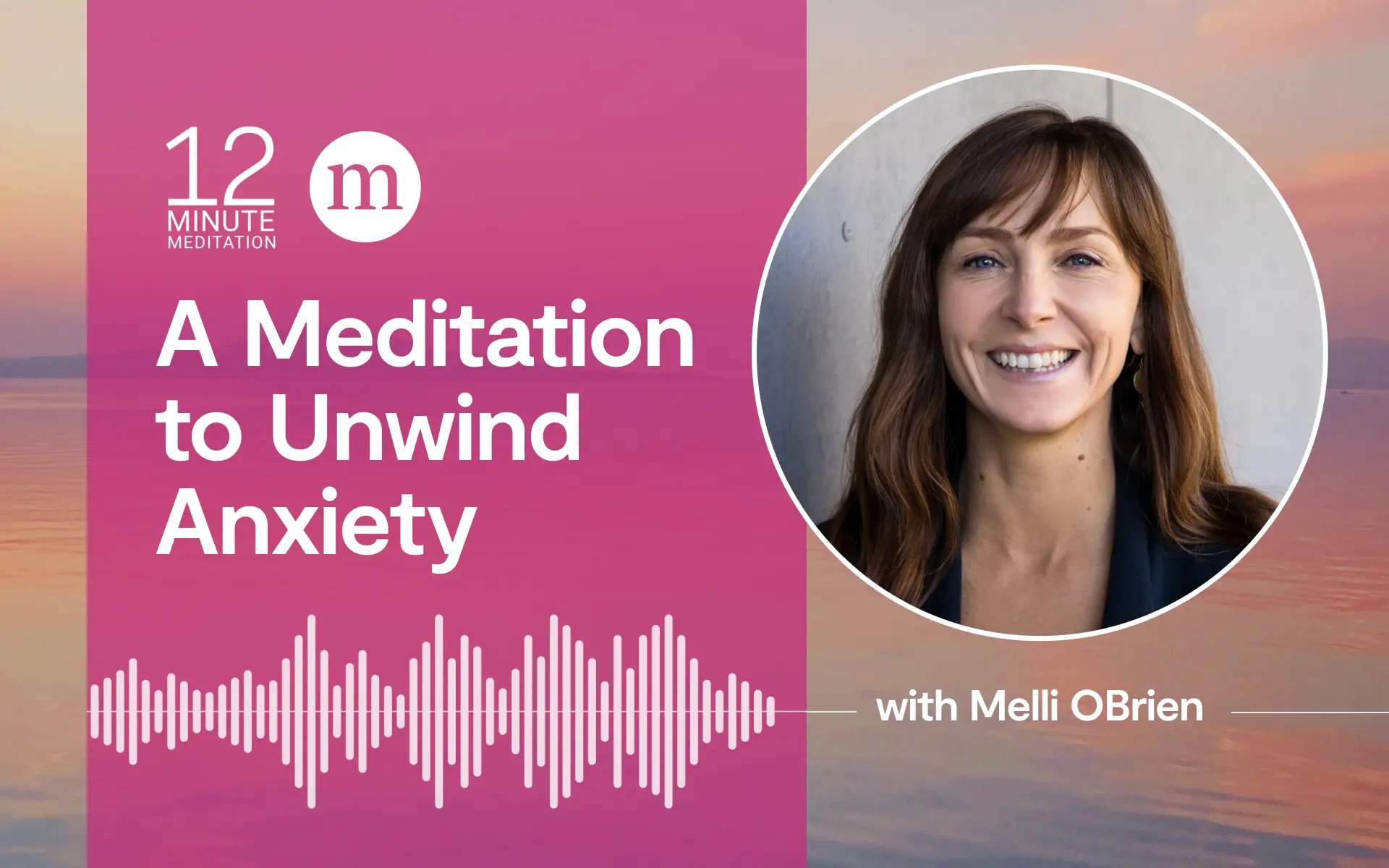Caught up in a flurry of emails, to-do lists, and the daily grind, most of us take passing thoughts at face value. Something drifts past…we grab hold. I wonder why no one makes savory ice cream flavors and I need to call a tutor about my child’s reading and that new phone looks so cool! Some ideas are valuable, some spontaneous and amusing, while others are habitual, random, or even frightening.
We all develop patterns of thinking over our lifetime, many of which are unconscious and can undermine our mental health by trapping us in painful moods. There are ways to break the pattern: a 2016 study again validated Mindfulness-Based Cognitive Therapy (MBCT) for treating depression. One premise of MBCT is that greater awareness of the content of our thoughts—cultivated through mindfulness practice—allows us to recognize destructive mental habits and, over time, create new approaches around even the most challenging experiences.
An individual with depression might typically notice a mood shift and get sucked into a vortex of despair. I can’t handle this again, I’ll never get better, nothing works for me. Following that cycle, another depressive episode settles in. But with MBCT, people learn to notice a negative pattern of thinking and redirect it before sliding into another full episode. My mood’s down, it’s not my fault, and I’ve gotten through it before and I will again.
Mindfulness can help us build awareness of how we think. That’s because in reality our ideas are actually nothing more than ideas. Many only add stress to already stressful situations. There’s a time for problem solving and analysis, for creativity and random fun. There’s also a time for letting things alone. Not all ruminations, assumptions, or imagined futures are worth—quite literally—a moment’s thought.
Mental Meteorology
Whether we want them to or not, thoughts come and go like clouds in the sky. I’m an idiot for sending that email, I never get anything right, and look over there, I need those shoes. A regret about the past lives forever behind us unless something needs to be done about it now, a disturbing image of the future isn’t the future. It isn’t easy to let go of fear, anger, or remorse—but it’s useful to recognize how often they aren’t tied to anything solid or real.
For example, consider self-judgment. Our inner heckler takes a far harsher perspective on our lives than we would ever take toward our closest family and friends. It hurts, and maybe makes us feel incapable of change, and yet most of the time judges us on nothing particularly valid. You’ll never change, you shouldn’t dwell on things so much, you should know better. It’s a learned way of thinking, nothing more or less.
Caught in the mental squall, there’s not much point yelling or trying to force the critical voice away. Instead, we can acknowledge we don’t love the fact that our inner weather has turned nasty but not contest it either. That’s the critic spouting off again, thanks anyway. We don’t have to validate less helpful thoughts by engaging or fighting with them quite so much. (This topic resonates with a lot of people, so I put together a basic guided meditation for taming your inner critic.)
Don’t Believe Everything You Think
Challenging situations are often quite real and with mindfulness there’s no intention, or even possibility, of suppressing anything. As frequently illustrated with the exercise “whatever you do, don’t think of a pink elephant,” trying to squash a thought only makes it stronger. Instead, the practice of mindfulness emphasizes awareness.
Many years ago a marketing exposé touched on a related truth about habit. At that time, Target stores monitored purchases to guess who was pregnant so they could, well, target their marketing. Once new parents settled on a particular shopping choice around baby products, Target knew the pattern was unlikely to change (diapers = Target). The solution for consumers? Nothing more than pointing out shopping habits are habits makes people more likely to switch. With that moment of clarity another choice becomes possible. But as long as we remain unaware of our habits, around shopping or anything else, they’re unlikely to change.
Our mental routines often skew our perspective in more challenging ways. Try these three thought experiments:
- Reflect on a past decision that went well and one that wasn’t your finest.
- Picture an ideal future for your child and one that worries you.
- Focus on what makes you most proud about yourself and then what you least like.
For each pair, what holds your attention longer?
For most of us, whatever seems off or dangerous stands out. If ten things go perfectly one day but you feel you screwed up one interaction, which hangs around that evening? This hard-wired bias takes effort to manage. There’s a large difference between making skillful choices, repairing a mistake, or planning for the future versus becoming swamped by hypothetical or long-past events.
Our mental habits can be both useful and far from useful—to start sorting out the difference we first have to notice them. Practicing mindfulness, we guide ourselves out of reactive stress mode and pause. From there, we observe how we think more clearly. Without judging ourselves flawed for whatever we find, we set new intentions moving forward.
The same applies for many habitual ways of living. It goes for how we talk to our family and friends, manage stress, and vote in elections. It drives how we think about ourselves and how we live. I can’t stand another moment of this, it will never change, there’s no escape. Our internal storylines—how we think—can make even the most challenging times feel far, far worse than they otherwise would.
Thoughts Are Just Thoughts
I once heard this from someone who had fallen off the wagon: The first time I got caught up in how miserable I felt and that I must be letting everyone down. It took months to recover and I nearly died. This time I knew my anxious thoughts aren’t me. I saw what was happening and checked into a center two days later and now I’m sober again. I have a lot to deal with in my life but know what I have to do. Mindfulness didn’t keep all that from happening but let me see the way out.
With mindfulness we check in and find we don’t have to identify quite so closely with some of the storylines we create in our minds: That’s a disturbing story about the future I’ve created, but I’m doing what I can.
Such understanding creates a huge shift even during the hardest times. With mindfulness we check in and find we don’t have to identify quite so closely with some of the storylines we create in our minds: That’s a disturbing story about the future I’ve created, but I’m doing what I can. Even overwhelming ideas are only ideas. That one fact can serve as a lighthouse while we’re still stuck out at sea.
Our experience is always changing. Without awareness, mental patterns related to what we crave and what we fear make life harder. Long past the time for valuable problem solving or learning from experience, rumination and other patterns continue and amplify stress. Thinking can be the problem, not the solution, when there’s nothing more to fix or to be done.
Not that it’s so easy to let go of what triggers us, or even to decide which ideas require action and which do not. It’s not our fault that we get stuck in old mental ruts. We easily blame ourselves for having a less than useful habit in the first place—enough ruminating already, stop it. But we’re all constantly experiencing all kinds of thoughts and can do no better than the continued effort to work on what we’re able.
Our experience is always changing. Without awareness, mental patterns related to what we crave and what we fear make life harder. Long past the time for valuable problem solving or learning from experience, rumination and other patterns continue and amplify stress. Thinking can be the problem, not the solution, when there’s nothing more to fix or to be done.
With all of that exploration, mindfulness still doesn’t mean staring at our lives through a microscope. It’s not meant to increase thinking about thinking itself. Instead, we create mental space to develop awareness of what influences our lives. If we’re thinking about that concept too much—that’s another thought too. Letting go, maybe it’s time to get into the woods or watch TV for a bit. There’s never a need for perfect.
Mindfulness Practice: Watching the Weather
One mindfulness practice that builds awareness of thoughts is called “watching the weather.” Just as we might lie back in the grass on a warm autumn day and watch the sky, we sit for a moment and note thoughts as they come and go.
For this exercise, we create space between having a thought and reflexively believing or acting on it. The aim isn’t to disconnect from life. At some other time, we may choose to problem solve or run with a creative idea. But for a few minutes we let it all slide, give ourselves a mental rest, and observe the passing mental clouds.
• Take a few minutes right now to observe your thoughts.
• As thoughts surface, ask yourself: Is it true? Negative thoughts might arise: I’m not good enough to handle this. If she doesn’t get her act together, she’ll never get into college. But is it true? So much of what feels fixed or permanent turns out to be assumption, conjecture, or fantasy. After you’ve asked yourself this question of a particular thought you are having, try to gently let the thought go.
• Note the directions your mind tends toward: specific storylines or thoughts, boredom, hunger, etc.
• Become aware of habits, then note them as habits. Let go of what you choose, and see what else you might influence moving forward.







